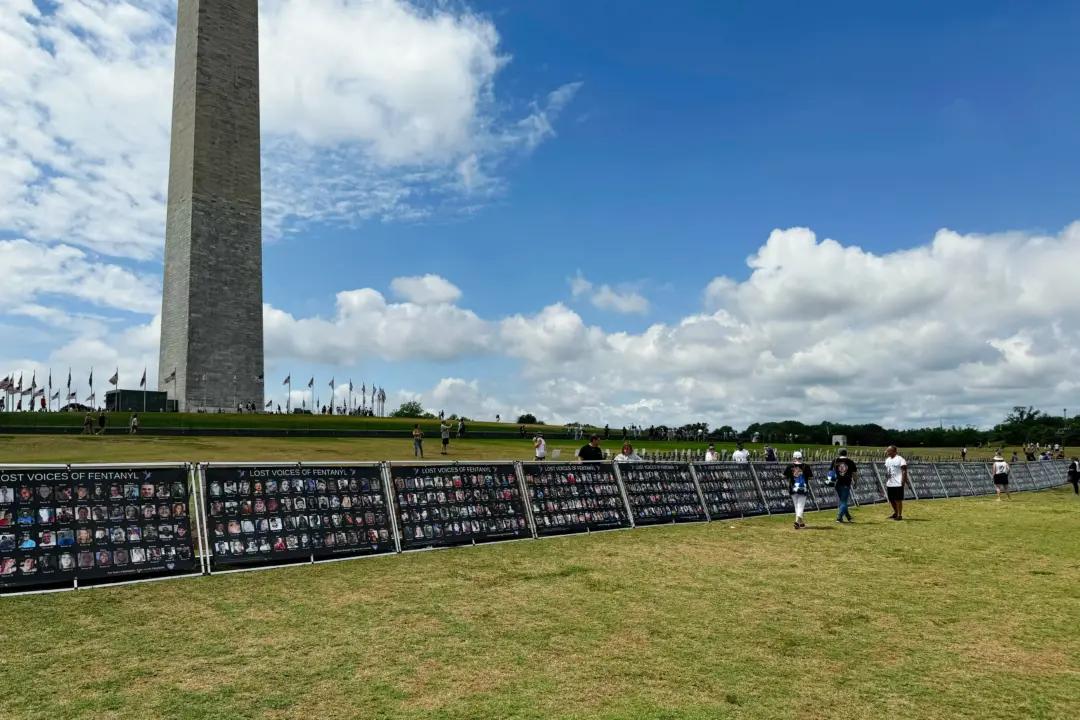WASHINGTON—Hundreds of the surviving relatives of those who have died because of illicit fentanyl gathered in Washington on July 13 to demand that the federal government take action on the issue.
During the day-long “Lost Voices of Fentanyl” event, family members spoke about the loved ones they had lost and suggested specific policy changes that could address the issue. The event capped off with a march down 15th Street to the White House from the Washington Monument.





